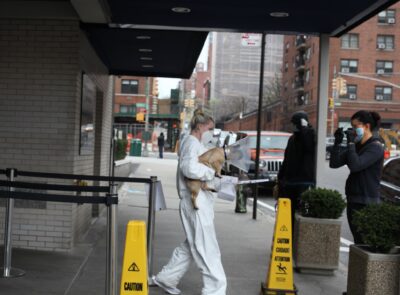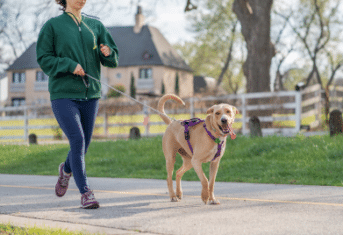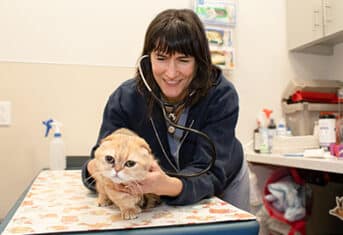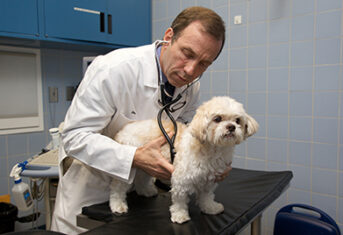Making a Specialist Visit Special during the COVID-19 Pandemic

Making a Specialist Visit Special during the COVID-19 Pandemic
Several years ago, I wrote a blog post about how pet families could get the most out of seeing a board-certified veterinary specialist. Based on recent information provided by the pet insurance company Trupanion, the specialty needs of pets have not changed during the pandemic. Allergic skin and ear disease still top the list of most common specialty medical conditions. Gastrointestinal upset and skin masses are also common. Since specialist visits are still a necessity during the pandemic, I thought I would revise my original blog post with tips for navigating a specialist visit in the “new normal” of COVID-19.
Go Solo
In my prior blog post, I suggested you take a friend along to the specialist visit. The friend would be an extra pair of ears and possibly a note-taker. In this era of social distancing, the friend is no longer a good idea. Most veterinary hospitals are not allowing clients inside at all or are restricting the number of people accompanying the pet into the hospital. In New York City, mandatory health screening applied to everyone entering a building so expect health screening to be part of a visit to the veterinary specialist. Bringing along a friend increases everyone’s risk of being exposed to the coronavirus. Your best fur friend is already sick and you don’t need your best human friend to get sick too.
Be Flexible
Every specialist handles communication a bit differently during the pandemic and your specialist will ask you to be flexible and patient with technology. Some specialists are using telemedicine software that integrates into their electronic medical record. Others are using video conferencing programs like Zoom or Skype to discuss your pet’s condition and their recommendations. One of my suburban friends has a window in his examination room. On nice days, he opens the window and the pet family stands outside the window to talk about their pet and observe the examination. I can tell you lots of phoning, texting and emailing is going on in specialist offices as well.
Some Things Stay the Same
My prior blog post includes a few points still valid today. The specialist will want every medical note, x-ray image and lab report from your primary veterinarian(s). And they will want that information before your scheduled appointment. Create a medication list or photograph the labels of all the medications your pet is taking to facilitate refills and prevent medication interactions. While you are taking photos, take some of your pet’s cans or bags of food. The more information you have at hand, the better your specialist visit will be.
These days it is all about adapting to a new normal. Making a specialist visit special takes a bit more effort than before the coronavirus pandemic. Despite all the upheaval, the goal of a specialist visit is making your pet healthy and that hasn’t changed one bit.

































